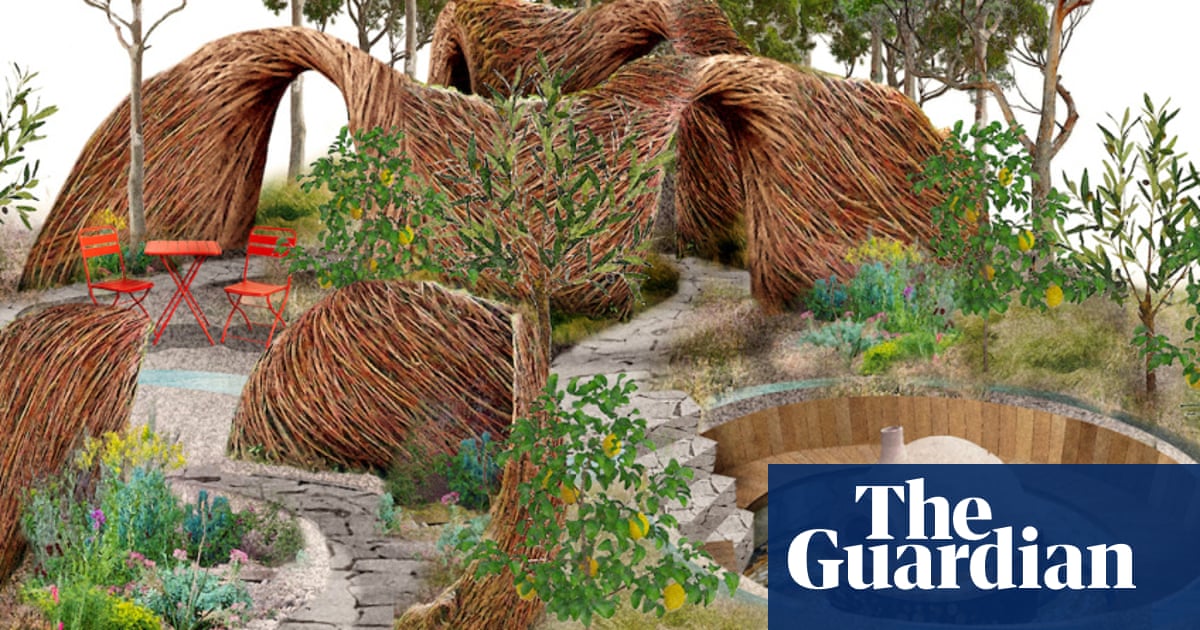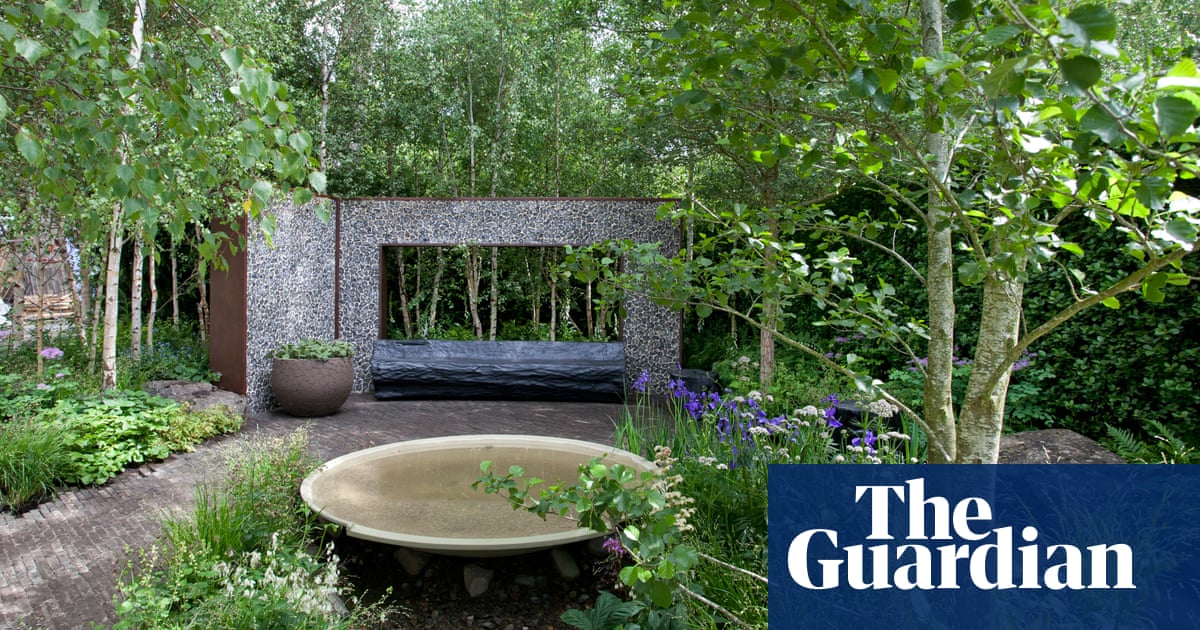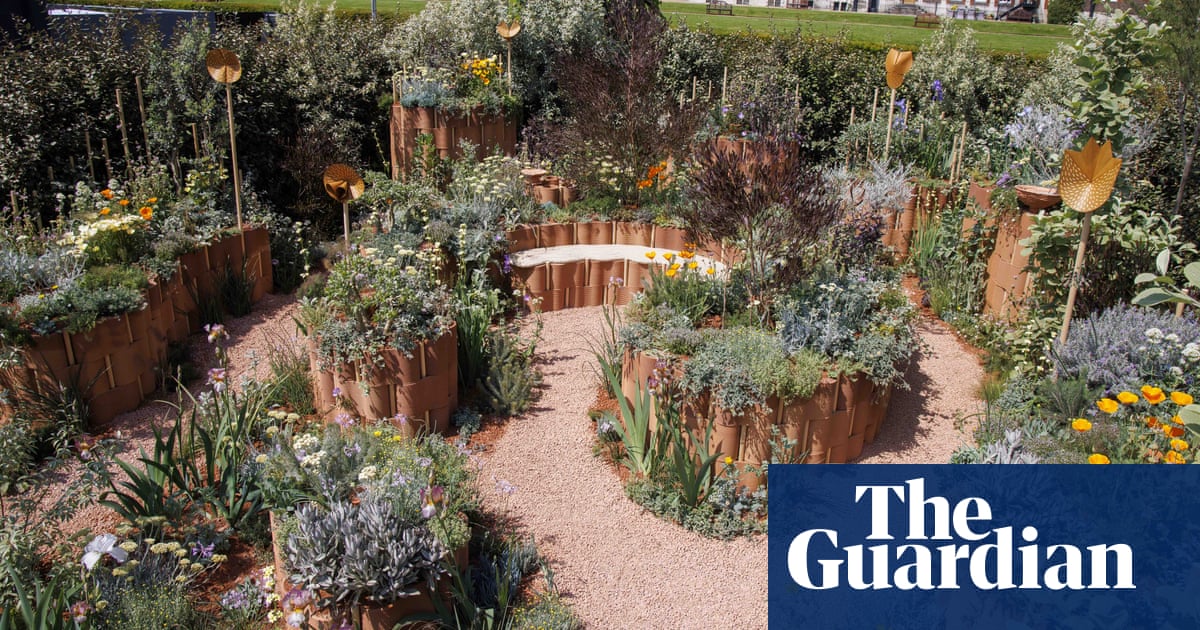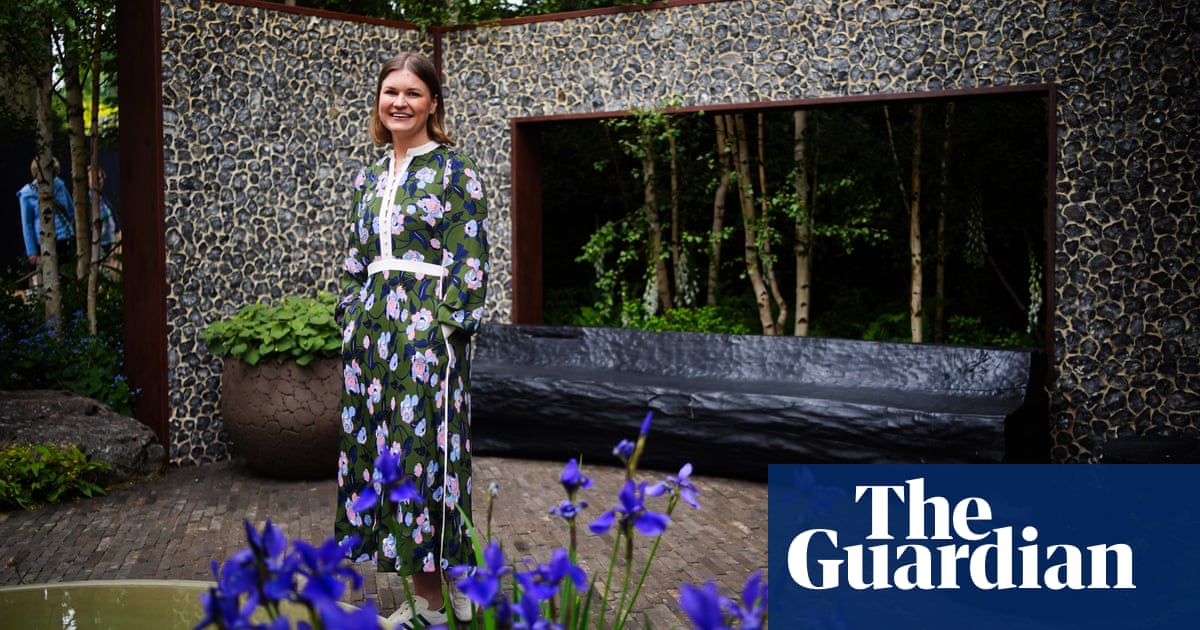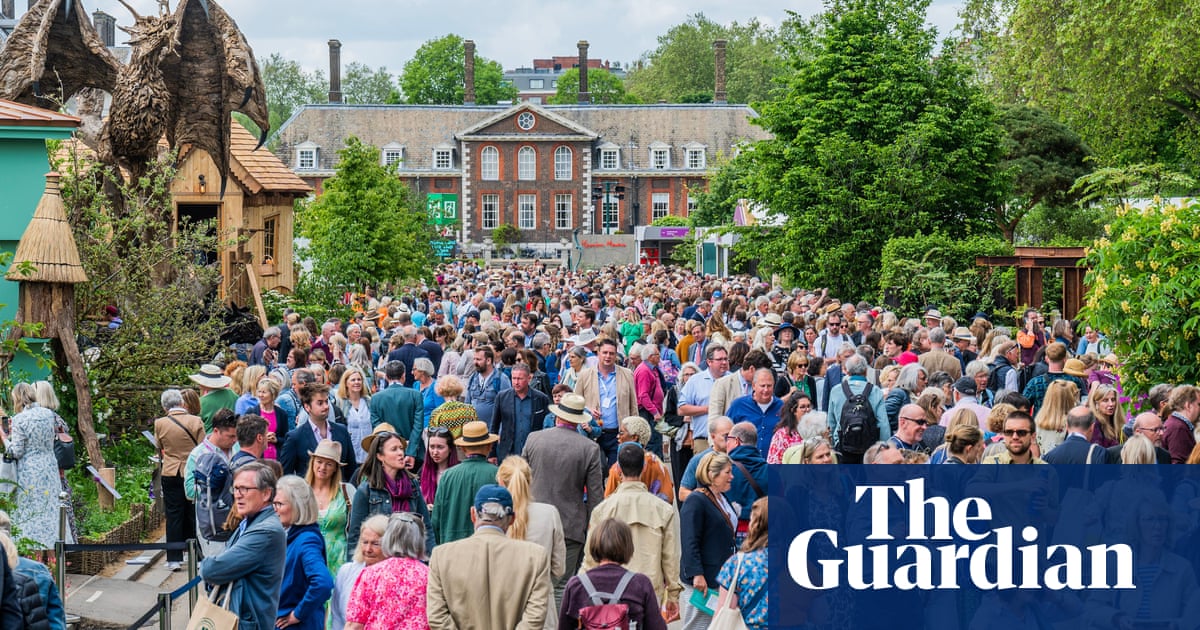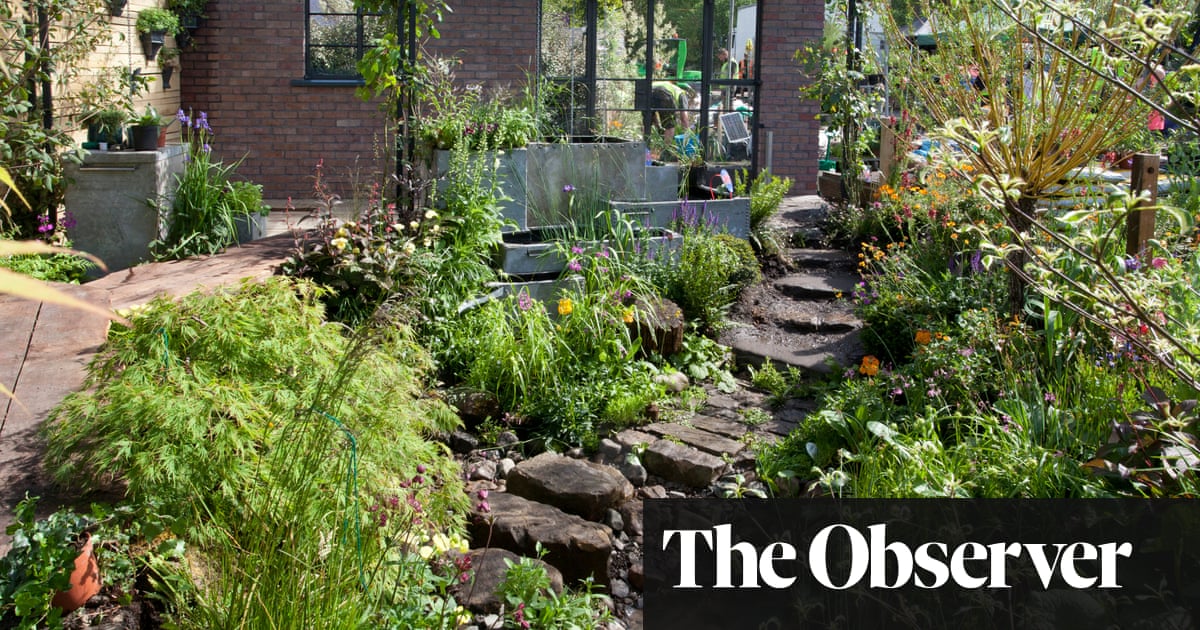
About 26,000 refugees live in the Domiz refugee camp.
Judges awarded the Lemon Tree Trust garden a silver-gilt medal, the second highest award at the show.
LONDON: Main Avenue at the Chelsea Flower Show in London is ordinarily reserved for showpieces by Britain’s leading horticulturalists, but this year Syrian gardeners from Domiz refugee camp in Iraq are the inspiration behind one of the most prominent displays.
Crowds clustering around the Lemon Tree Trust Garden on Member Day at the celebrated event this week are told that the space is designed to raise awareness about the reality of life in the camps, where despite the squalor and suffering, people still take pride in their surroundings.
“It’s really powerful, the human spirit and the will to thrive even in really difficult situations,” said the garden’s designer Tom Massey.
Most of those living in Domiz, north of Mosul, are Syrians who have been arriving since 2012. Six years on, as temporary structures in Iraq’s largest refugee camp take on a more permanent form, hundreds of gardens have sprung up across the space. Some people have even sold their land in Syria and invested the money into their homes here.
“Gardening is a way to put down roots when people decide they are going to stay longer,” Massey explained.
He told Arab News that at first glance the sea of beige buildings crowded across a barren plain in the Kurdish region of northern Iraq resembled every other refugee camp in the region. But stepping out of the car at Domiz, near the Syrian and Turkish borders, he witnessed how plants were transforming the bleak surroundings.
“It’s incredibly hot and dusty, but as soon as you move into a garden space, you’re transported,” said Massey, who worked with gardeners in the camp to develop ideas for the showpiece.
The Lemon Tree Trust is a UK-based aid organization that has been working at refugee camps across northern Iraq for the last three years.
Massey, a former animator who retrained as a garden designer, was struck by the “resilience, determination, ingenuity and dedication” conveyed in each tiny green space he saw.
Pomegranate, rose and citrus trees flourish throughout the 710-square mile Domiz camp and in other camps nearby, bringing bursts of color to the backdrop of canvas and concrete. Even a six-foot space between a door and a garden gate made from an old UN tent will have been used to plant flowers and grow vegetables in ingenious ways.
“You read stories about the resilience and strength of the human spirit in the camps, but I didn’t expect the creativity that can flourish when people have so little,” said Alfonso Montiel, who also works with the Lemon Tree Trust.
In Aveen Ismael’s garden at Domiz, the back wall is adorned with old wellington boots painted and planted with flowers, while a closer inspection of her herbaceous border reveals old footballs refashioned as plant pots.
“Syria is green, but here it was like a desert until we started growing plants and trees,” she said. “Creating a garden was a way for us to heal and remind us of home.”
The 35-year-old, who was forced to flee Damascus in 2012, has become a local team leader for the Lemon Tree Trust, organizing gardening competitions and encouraging more residents to take part. Interest has grown from around 50 participants in 2016 to the almost 1,000 entrants across the five refugee camps who were involved this year.
In the gardens across Domiz there is a sense of community that is akin to the sociable atmosphere on a London allotment, said Massey, who plans to develop more spaces for the neighborly feeling to flourish by creating public outdoor gardens in the camp where people can come together and “share their passions.”
Montiel believes the draw of the gardens is down to the “need we all have to see beauty and be around nature.” At Domiz camp, he said “extreme beauty and extreme suffering exist side by side” in the generosity and hope that people demonstrate despite the destitution of their situation.
For many, tending their gardens is a way of passing the time and pushing back against the stillness of camp life. Everyone relates differently, whether it is a means of earning a living, easing the boredom or an attempt to capture a semblance of home.
One woman Montiel met there showed him pictures of the rose she tended in Syria, a cutting from which is now growing outside her house in Domiz. Other gardeners in the camp brought seeds with them from Syria when they fled, or asked friends and relatives to send a “piece of home.”
At the Chelsea Flower Show, horticulture enthusiasts described to Arab News the affinity they felt with the Syrian gardeners of Domiz.
“This kind of garden here tells a story about what this means to refugees and to people in London, and the experiences they have to go through to grow their own,” said giant vegetable specialist Kevin Fortey.
The refined lines and ornamental elegance of the London showpiece puts a polish on the make-shift gardens that inspired it, but the materials and arrangements displayed here reflect the creativity that thrives in the green spaces of Domiz.
Massey made use of concrete, timber and steel, materials frequently featured in the camps, which are “quite daring at the Chelsea Flower Show,” he said.
At the center of the display, a 50-year-old lemon tree showcases the origins of the project, while a wall-hung herb and vegetable garden represents the tin cans and halved plastic bottles used to grow food in the camp.
Surprisingly, the majority of plants in Domiz are grown for purely ornamental purposes rather than to supplement limited food supplies. “It’s interesting that in a situation of absolute desperation, having lost everything, people pay attention to feeding the soul, in some cases more than the stomach,” said Montiel.
It’s a detail he shared with Queen Elizabeth when she attended the Chelsea Flower Show on Monday, the first in a stream of dignitaries to tour the garden before it opened on Tuesday, including British Prime Minister Theresa May.
Unlike most guests, they were granted access to the sanctuary behind the barrier, where the clamour of the crowds gives way to the sound of water lapping over the sides of a star-shaped fountain as latticed wood screens shield the show from view.
There they were able to experience some of the solace and tranquility nature can offer people, even in times of war.





